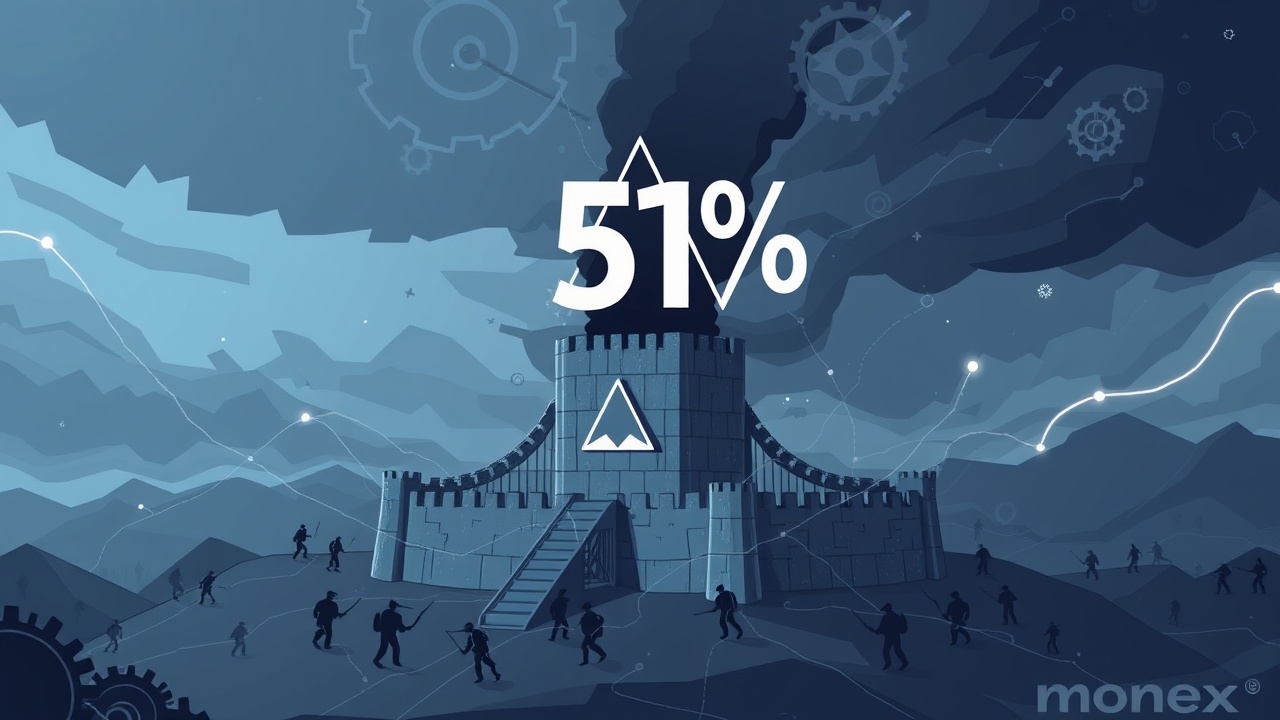Monero Community Considers Changes to Proof-of-Work System
The Monero community is currently considering significant changes to its proof-of-work (PoW) consensus system to safeguard against the risks of 51% attacks. Among the various suggestions put forth by community members are strategies like:
- Localization of mining equipment
- Implementation of a merge mining protocol, allowing XMR to be mined alongside other leading cryptocurrencies such as Bitcoin
- Integration of Dash’s ChainLocks solution into the existing framework
Understanding ChainLocks
ChainLocks, a feature from Dash, employs a system of masternodes that are chosen at random to establish consensus on the first valid block that the network sees. This mechanism serves to secure the blockchain by locking the ledger and ensures that only blocks verified through ChainLocks can be added to the chain. This enhancement would run parallel to the current PoW mechanism.
Expert Insights on Security Risks
According to Joel Valenzuela, a core member of the Dash DAO, ChainLocks can effectively thwart 51% network takeover attempts and prevent block reorganizations—even in scenarios where selfish or malicious miners with more accumulated proof-of-work attempt to dominate the chain.
Valenzuela expressed concerns regarding the “Qubic attack,” which targets vulnerabilities in the security models of mined cryptocurrencies, especially those lacking application-specific integrated circuits (ASICs). He emphasized that any chain aiming to resist ASIC attacks must be vigilant about its economic incentives or else risk exposure to attacks.
The Rise of Qubic
The emergence of Qubic, an AI-centric blockchain and mining pool, has raised alarms after it claimed to achieve 51% control over Monero in August. This development has sparked anxiety within the community regarding other potential targets, particularly among proof-of-work networks. Notably, Qubic recently emerged as the foremost Monero mining pool, possessing 2.18 gigahashes per second (GH/s) of computing power—more than any other miner on the network, as verified by MiningPoolStats. In contrast, Supportxmr holds the position as the second-largest mining pool with 1.18 GH/s.
Community Reactions and Exchange Responses
The Monero community appears to be at odds over the implications of the attack. Some members assert that Qubic has not fully seized majority power over hashing capabilities and only executed a minor block reorganization rather than a complete network coup. Despite these disputes, well-known cryptocurrency exchange Kraken temporarily suspended Monero deposits, later reinstating them with the condition of requiring 720 confirmations for crediting accounts with XMR. Kraken indicated that the current fluctuations in network security stemming from the single entity controlling a significant portion of the hash rate could lead to further deposit halts at their discretion.
Future Plans of Qubic
In a recent vote, members of the Qubic community opted to set Dogecoin as their next target, with over 300 votes in favor—outpacing all other potential options. Post-vote, Sergey Ivancheglo, Qubic’s founder, stated that transitioning to DOGE mining will demand several months of development, clarifying that the focus remains on Monero for now.




